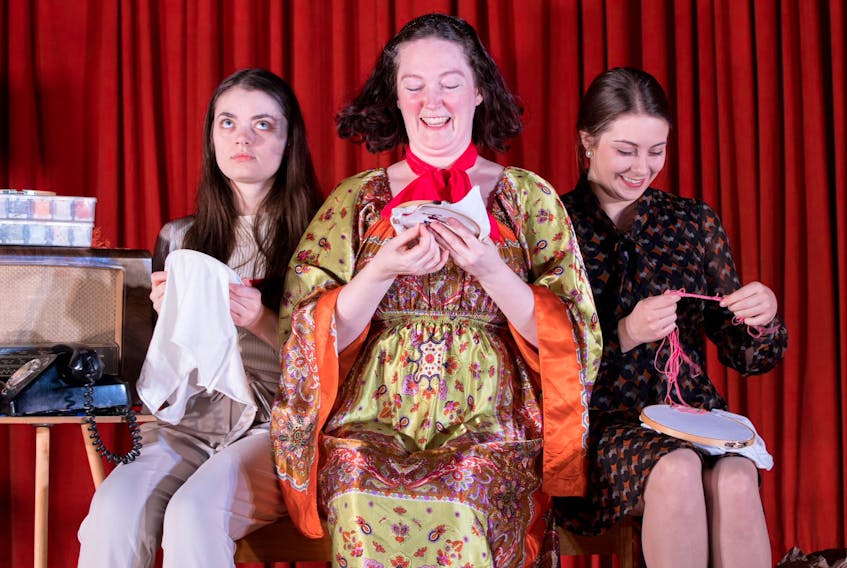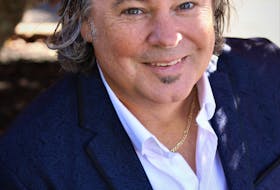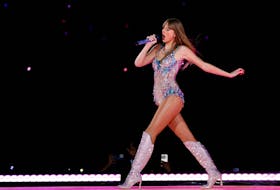ST. JOHN'S, N.L. — The Lantern was aglow on Thursday for “Private Eyes,” featuring six short plays created to commemorate the 50th anniversary of the (partial) decriminalization of homosexuality, through the 1969 Criminal Law Amendment Act.
Commissioned by Lieutenant-Governor Judy Foote, in partnership with the Office of the Lieutenant-Governor of Ontario and local company Power Productions and Ontario’s lemonTree creations, the short plays explore the ongoing fight for equality for marginalized groups within the LBGTQ+ community.

The evening opened with Ontarian Sonny Mills’ “Chaos Gays,” with actors storming the stage as a local politician stumbles over the LBGTQ+ acronym, while simultaneously trying to ensure the gay community that the Hamilton city council understands their needs. What do they want? Freedom from persecution. What does the city think they want? Rainbow crosswalks and flags.
Hilarity ensued during “I Want That Free Mind,” from Ontario’s Bilal Baig. Set in a forest, we meet three people — a Latinx trans man, a Pakistani immigrant and a black trans woman, indulging in some hallucinogens and sex. Interrupted by a white woman yelling about calling the cops, and a recurring visit from a strange dog, the trio lose grip on reality, but they still know what kind of reality they want to live in — “the opposite of scared.”
Local playwright Veronica Dymond’s “Cross Stitch” followed, this fan favourite exploring the relationship of lesbian couple Helen and Angie, as their Friday night hangout is interrupted by bigoted coworker Collette.
Collette believes Angie has a boyfriend, unaware that Angie has been talking about her partner Helen, though in the abstract. As Collette unknowingly detailed information about Angie’s feelings about Helen, the audience was on edge. In this play, love triumphs over bigotry, the happy ending to a hilarious skit drawing a spirited crowd reaction.
Another local production was next, with Paul David Power starring in “Drive.” Set in 1991, Power is cruising the “fruit loop” — the east end of Duckworth Street, an area known for cruising. A one-man show, this piece explores cruising culture, sexual attraction versus sexual needs, homophobia and body image, especially as it pertains to physical disabilities.
Flashing his headlights in search of a sexual partner for the night, Power talks about the dangers of being a “card-carrying” gay man — physical violence, bigotry, social alienation and more.
The final piece from Ontario was “Running,” by Falen Johnson. This short play tells the story of a female lawyer advocating for Indigenous rights within a corrupt criminal justice system. A copy of the Truth and Reconciliation Commission of Canada (TRC) in hand, she tries to connect with an inmate, who doubts her commitment to the incarcerated and the Indigenous community, as he mocks the term “intergenerational trauma.”
Though it seems like little progress is made during the meeting, it gives both parties food for thought.
The evening ended with “All Manner of Dirt,” from local playwright Robert Chafe. Billed as “a love story about time and consequence and power and words and grief and recovery,” “All Manner of Dirt” follows the life of one gay man. We learn of his struggles with his sexuality, from confessing to impure thoughts in confession, overhearing his father denounce the gay community, to engaging in casual sex, interacting with other gay men and burying his husband, bringing the audience on an emotional rollercoaster ride.
An emotional rollercoaster ride could also accurately describe the audience’s journey through the six performances — we laughed, we teared up, we felt enraged, and throughout, in a room full of LBGTQ+ people and allies, we felt connected to one another.









